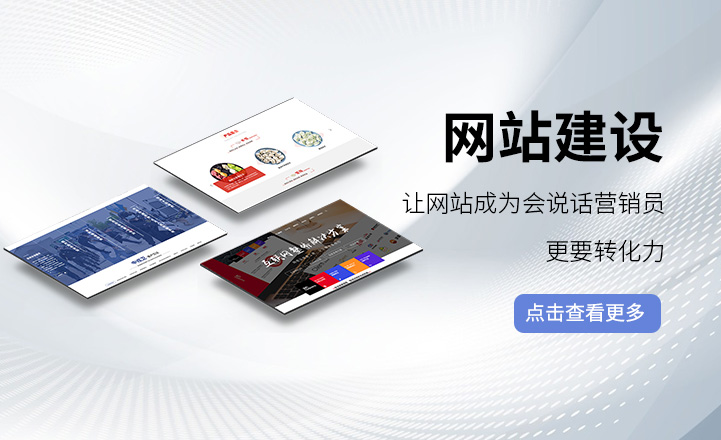场景化营销通过将产品或服务嵌入具体使用场景,让用户在代入感中感知价值,摆脱传统推广的生硬灌输,成为网络营销的有效方式。其核心是挖掘用户在特定场景下的需求与情感,通过细节呈现构建 “需求 - 解决方案” 的自然关联。
Scenario based marketing embeds products or services into specific usage scenarios, allowing users to perceive value through immersion and breaking free from the rigid indoctrination of traditional promotion, becoming an effective way of online marketing. Its core is to explore users' needs and emotions in specific scenarios, and to construct a natural correlation between "needs and solutions" through detailed presentation.
还原真实生活场景是基础方法。从用户日常片段切入,用细节增强代入感:推广早餐机时,展现 “7 点起床的上班族,在厨房快速制作三明治 + 热饮,5 分钟搞定早餐” 的场景,镜头聚焦匆忙的闹钟、冒着热气的机器、咬下食物的满足表情,让同类用户联想到自身的时间紧张痛点。推广护肤品则可呈现 “熬夜加班后,用修护面膜缓解肌肤疲惫” 的场景,搭配电脑屏幕蓝光、暗沉的肤色、敷面膜后的光泽对比,比单纯说 “修护功效” 更有说服力。场景需包含环境(如卧室灯光、办公室陈设)、动作(如撕开包装、涂抹手法)、情绪(如匆忙中的焦虑、使用后的放松),让用户产生 “这就是我的生活” 的共鸣。
Restoring real-life scenarios is the fundamental method. Starting from daily moments of users, enhancing the sense of immersion with details: When promoting breakfast machines, the scene of "office workers who wake up at 7 o'clock, quickly make sandwiches and hot drinks in the kitchen, and finish breakfast in 5 minutes" is displayed. The camera focuses on the hurried alarm clock, the steaming machine, and the satisfied expression of biting down on food, making similar users associate their own time pressure pain points. The promotion of skin care products can present the scene of "relieving skin fatigue by repairing the facial mask after staying up late and working overtime", which is more convincing than simply saying "repairing effect" by matching the blue light of the computer screen, dark skin color, and the gloss contrast after applying the facial mask. The scene should include the environment (such as bedroom lighting, office furnishings), actions (such as tearing open packaging, painting techniques), emotions (such as anxiety in haste, relaxation after use), and create a resonance with the user that 'this is my life'.

构建问题解决场景直击用户痛点。先放大特定场景下的困扰,再自然引出产品作为解决方案:针对家长辅导作业的烦躁,可设计 “孩子算错数学题,家长耐着性子讲解却越说越急” 的场景,随后展示 “智能学习机通过动画解析错题,孩子自主理解” 的画面,突出 “减少亲子矛盾” 的隐性价值。推广雨伞时,聚焦 “暴雨天收伞后,水滴弄湿地板、弄脏包包” 的场景,再演示产品的 “反向收伞” 设计如何解决滴水问题。这类场景的关键是 “先让用户痛苦,再给解药”,问题描述越具体(如 “滴在文件上的水迹”“被淋湿的手机”),解决方案就越有吸引力。
Build problem-solving scenarios that directly address user pain points. Firstly, amplify the difficulties in specific scenarios, and then naturally introduce products as solutions: to address the frustration of parents in tutoring homework, a scenario can be designed where "the child miscalculates a math problem, but the parent patiently explains but becomes more urgent", followed by a display of "the intelligent learning machine analyzes the wrong problem through animation, and the child understands it independently", highlighting the implicit value of "reducing parent-child conflicts". When promoting umbrellas, focus on the scene of "water drops wet the floor and dirty the bag after umbrella collection in rainstorm days", and then demonstrate how the product's "reverse umbrella collection" design solves the problem of water dripping. The key to this type of scenario is to 'first make the user suffer, then give the cure', and the more specific the problem description (such as' water droplets on files' or 'wet phones'), the more attractive the solution will be.
打造情感共鸣场景链接用户情绪。借助节日、季节、人生阶段等场景触发情感:推广中老年服饰时,呈现 “重阳节家庭聚餐,老人穿上新衣被子女夸赞‘精神’” 的场景,通过拥抱、笑声传递亲情温暖;推广旅行箱则可设计 “毕业生次独自远行,拉着箱子在车站与父母告别” 的场景,关联成长与独立的情感。情感场景需避免刻意煽情,而是用生活化的互动细节(如老人整理衣领的动作、父母偷偷塞钱的瞬间)引发自然共鸣,让用户对产品产生情感寄托,而非单纯的功能认知。
Create emotional resonance scenarios that link user emotions. Triggering emotions through scenes such as festivals, seasons, and life stages: When promoting clothing for middle-aged and elderly people, present a scene of "Double Ninth Festival family dinner, elderly people wearing new clothes praised by their children for their 'spirit'", and convey warmth through hugs and laughter; The promotion of travel suitcases can be designed with the scene of "graduates on their first solo journey, holding the suitcase and bidding farewell to their parents at the station", linking the emotions of growth and independence. Emotional scenes should avoid deliberately stirring up emotions, but instead use real-life interactive details (such as the elderly tidying up their collars or parents secretly stuffing money) to trigger natural resonance, allowing users to have emotional attachment to the product, rather than just functional cognition.
本文由济南网络推广友情奉献.更多有关的知识请点击:https://www.chinanovo.net真诚的态度.为您提供为的服务.更多有关的知识我们将会陆续向大家奉献.敬请期待.
This article is a friendly contribution from Jinan website construction For more information, please click: https://www.chinanovo.net Sincere attitude To provide you with comprehensive services We will gradually contribute more relevant knowledge to everyone Coming soon.












 鲁公网安备37010202000892号
鲁公网安备37010202000892号